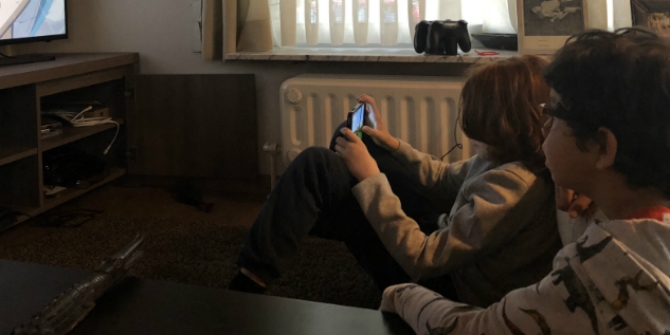September is here, and with it comes the beginning of another school year. While the end of summer might mean less free time for children to ‘loaf’ in front of a screen, the demands of school life mean that children and parents will continue to confront issues surrounding digital media use, including balancing screen time and internet privacy and safety.
For over two years now, our blog has featured the newest research about children, families and digital media, with contributions from our team and researchers around the world. To kick-off the beginning of this school year, we are highlighting some recent content you may have missed.
If you don’t already subscribe, please click here.
As ever, the public debate around digital media and children rages on. Recently, we responded to the controversial claim that ‘smartphones are destroying a generation’ by recognising that while teens’ mental health is indeed a concern, it is hasty to conclude that smartphones are solely to blame for a number of cultural and social shifts. Such media-panic is quite common, as with the Blue Whale Game controversy, or with the take-away message in Nancy Jo Sales’s hyperbolic book ‘American Girls’. While of course there are legitimate reasons to be concerned about child safety online, and a number of potential risks, our research tells us to be critical of extreme conclusions about digital media, and instead to focus on improving digital literacy and child-focused policy.
How parents, educators and governments can protect children’s rights to access and keep them safe is far from only a UK-question. Educators in Kenya and researchers in India considered how ‘eSafety’ looks in the context of highly unequal societies, and researchers in Turkey showed us how parents and children negotiate media decisions together – in contrast to parents in the US.
To inform policy and debate we feature posts investigating the balance between risks and opportunities. Many children encounter inappropriate content online, ranging from pornography to bullying and harassment, and giving parents and children information on how to flag, block and report inappropriate content can help reduce these risks. With quick-developing technologies like augmented reality apps or personalised reading for children, it is increasingly difficult to regulate quality and safety. We featured video interviews that explored the screen lives of 9-17 year-olds, including their testimonial experiences about encountering porn online. Subsequently, we published 5 tips for parents to successfully communicate to their children about porn.
We also recognise opportunities that the internet offers to children and parents alike. For first generation college students in America, digital storytelling allows students to navigate issues of social class mobility. For families, games like Pokémon Go provide a chance for fun and shared experience. For young children, the Internet of Toys and digital books offer new modes of playing and learning.
Continuing our exploration of parents’ roles in children’s lives online, we created an infographic with the Connected Learning Alliance outlining key strategies for managing screen time. Our research also provides guiding points for parents to develop a more balanced view of healthy screen time, rather than just watching the clock. We also featured posts that explore the role of ‘father bloggers’ who build a community online, discuss ‘Tiger moms’ who overshare online about their children’s achievements, and propose a public health model to address issues around sharenting.
We have plenty more posts in the pipeline, including previews from our upcoming book Parenting for a Digital Future (to be published by Oxford University Press). As always, if you are interested in submitting a guest post, please see our editorial guidelines here.
This post gives the views of the authors and does not represent the position of the LSE Parenting for a Digital Future blog, nor of the London School of Economics and Political Science.





